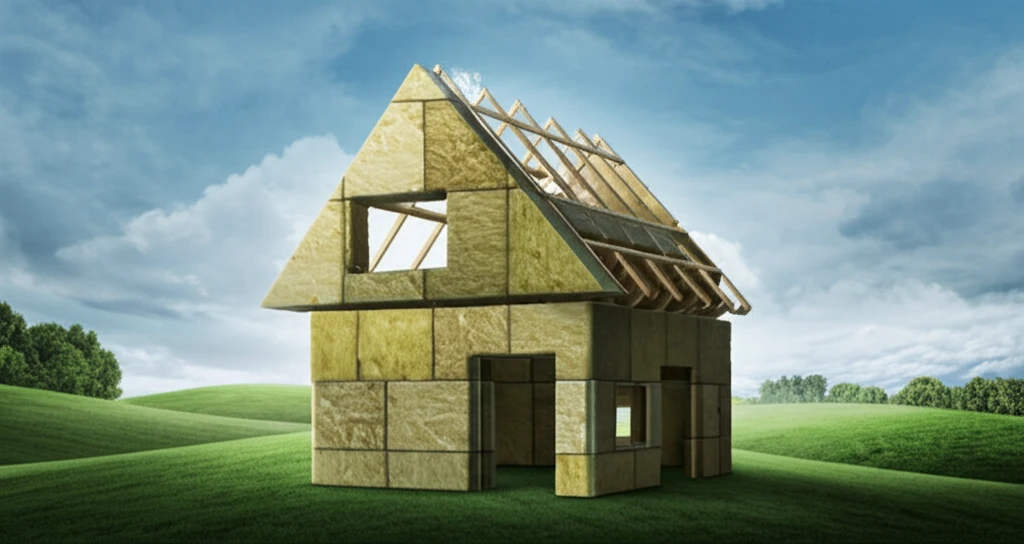
Building a Greener Future: How Recycled Insulation Can Transform Your Home and the Planet
"Discover the potential of innovative, recyclable insulation materials to improve energy efficiency, reduce waste, and create a more sustainable future for all."
In a world increasingly focused on sustainability, the building industry is undergoing a significant transformation. Traditional construction materials and practices are being scrutinized for their environmental impact, leading to a surge in demand for greener alternatives. Among these, thermal insulation stands out as a key area for innovation. Insulation not only enhances energy efficiency in buildings but also plays a crucial role in reducing carbon emissions.
The pursuit of sustainable building solutions has led researchers and manufacturers to explore the potential of recycled materials in insulation. This approach addresses two critical environmental concerns: reducing waste and minimizing the energy consumption associated with producing new materials. By utilizing recycled resources, we can significantly lower the embodied energy – the total energy consumed during the production, transportation, and construction phases – of our buildings.
This article delves into the exciting world of recyclable insulation materials, examining their benefits, challenges, and potential to revolutionize the construction industry. We'll explore the science behind these innovations, showcase real-world examples, and provide practical advice for homeowners and builders looking to embrace sustainable insulation solutions. Join us as we uncover how recycled insulation can pave the way for a greener, more energy-efficient future.
The Promise of Recycled Insulation: Boosting Energy Efficiency and Reducing Waste

Recycled insulation materials offer a compelling solution to the environmental challenges posed by traditional construction practices. By diverting waste from landfills and repurposing it into high-performance insulation, we can achieve a multitude of benefits. These include reduced carbon emissions, lower energy bills, and a more sustainable built environment.
- Lower Embodied Energy: Recycled materials require significantly less energy to produce compared to virgin materials, reducing the overall environmental impact of construction.
- Waste Reduction: Diverting waste from landfills conserves valuable resources and reduces pollution.
- Improved Energy Efficiency: Recycled insulation can provide excellent thermal performance, reducing energy consumption for heating and cooling.
- Cost Savings: In some cases, recycled insulation can be more cost-effective than traditional options.
- Sustainable Construction: Using recycled materials contributes to a more sustainable and environmentally responsible building industry.
Embracing a Sustainable Future with Recycled Insulation
The shift towards sustainable building practices is not just a trend but a necessity. By embracing innovative solutions like recycled insulation, we can create homes and buildings that are not only energy-efficient and comfortable but also contribute to a healthier planet. As research and development in this field continue to advance, we can expect even more innovative and effective recycled insulation products to emerge, paving the way for a truly sustainable future for the construction industry and beyond.
